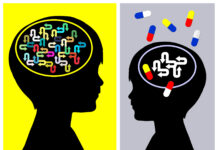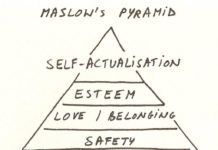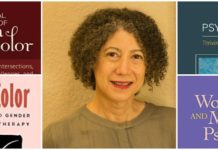Textbooks Provide Misleading Information on the Neurobiology of ADHD
When it comes to ADHD, some researchers suggest that medical textbooks provide inaccurate and misleading information.
Smoking Restrictions Linked to Reduced Suicide Rates
Smoking laws and cigarette taxes have strong links to suicide rates, according to psychiatrists from Washington University in St. Louis. Previous studies have presumed...
How Does the Soteria House Heal?
The alternative treatment model of Soteria helps individuals suffering from schizophrenia without relying on medication or coercion.
Understanding the Neurobiology of Post-SSRI Sexual Dysfunction
Post-SSRI sexual dysfunction (PSSD) may be a common adverse effect of antidepressants. Researchers are now attempting to understand the neurobiology behind it.
Overuse of Psychiatric Drugs is Worsening Public Mental Health, Doctor Argues
A new research article asserts that the overuse of psychiatric drugs may create neurobiological changes that hamper long-term mental health recovery.
Lexapro for Children: Drug With No Meaningful Benefit and Increased Suicidality Gets FDA Approval
Response and remission rates were the same in the drug versus placebo groups, and Lexapro increased suicidality sixfold.
A Biopsychosocial Model Beyond the Mind-Body Split
Can a renewed biopsychosocial approach, grounded in an updated philosophy, foster person-centered medicine, and psychiatry?
How to Distinguish Antidepressant Withdrawal from Relapse
Mark Horowitz and David Taylor provide advice on how to tell the difference between antidepressant withdrawal and depression relapse.
New Data on the Adverse Effects of Meditation and Mindfulness
Study reports on the less-examined findings of difficult and painful meditation-related experiences.
Risk of Suicide After Hospitalization Even Higher Than Previously Estimated
New analysis of post-discharge suicide rates finds estimates 6 times higher than recent studies.
Opening Doors in the Borderlands: An Interview with Liberation Psychologist Mary Watkins
MIA’s Micah Ingle interviews Mary Watkins about reorienting psychology toward liberation and social justice.
Vitamin B6 Effective in Reducing Antipsychotic Induced Akathisia
A recent RCT showed that vitamin B6 is as effective as propranolol for the treatment of akathisia.
Psychologist Debunks Common Misconceptions of Maslow’s Hierarchy
Utilizing Maslow’s published books and essays, psychologist William Compton delineates common myths and attempts to respond to them.
Addressing the Roots of Racial Trauma: An Interview with Psychologist Lillian Comas-Díaz
MIA’s Hannah Emerson interviews Comas-Díaz on the need for culturally competent care in a medicalized and individualistic society.
Bridging Critical and Conceptual Psychiatry: An Interview with Awais Aftab
MIA’s Justin Karter interviews psychiatrist Awais Aftab about how “conceptual competence” uses philosophy to transform psychiatry.
Researcher Acknowledges His Mistakes in Understanding Schizophrenia
Sir Robin Murray, a professor at the Institute of Psychiatry, Psychology, and Neuroscience in London, states that he ignored social factors that contribute to ‘schizophrenia’ for too long. He also reports that he neglected the negative effects antipsychotic medication has on the brain.
Study Confirms Overdiagnosis of ADHD in Children and Teens
Medical researchers present evidence that ADHD is overdiagnosed in children and teens, which can lead to significant harm.
Study Deems Support, Not Drugs, Best for Youth at Risk of Psychosis
Research by five U.K. universities across multiple sites for up to two years divided 288 young adults (14-35 years) deemed at risk for psychosis...
Antidepressants Linked to Lasting Sexual Dysfunction, Study Finds
New research highlights the challenges in quantifying the prevalence of Post-SSRI Sexual Dysfunction (PSSD), a condition that continues to affect patients long after they stop taking antidepressants.
Therapist Empathy Predicts Success in Psychotherapy
An updated meta-analysis reveals that therapist empathy is a predictor of better psychotherapy outcomes.
Antidepressants Not Clinically Useful for Back Pain
While professional guidelines recommend antidepressants for back pain, researchers point out the lack of evidence for their usefulness.
Reframing Antipsychotic Discontinuation: A Psychiatrist’s Personal and Professional Call for Epistemic Justice
A psychiatrist with lived experience advocates for a more humane, collaborative approach to antipsychotic discontinuation that respects diverse ways of knowing.
Antiseizure Drug Exposure in Pregnancy Linked to Large Risk of Autism, ADHD, and Intellectual...
Harms are “largely overlooked by psychiatry despite widespread usage,” according to the researchers.
Antidepressants Blunt Ability to Feel Empathy
A new study suggests that taking antidepressants impairs empathy, while the experience of depression itself does not.
Learning a Different Way: An Interview with Maori Psychiatrist Diana Kopua
MIA’s Ayurdhi Dhar interviews Diana Kopua about the Mahi a Atua approach, the global mental health movement, and the importance of language and narratives in how we understand our world and ease our suffering.

































